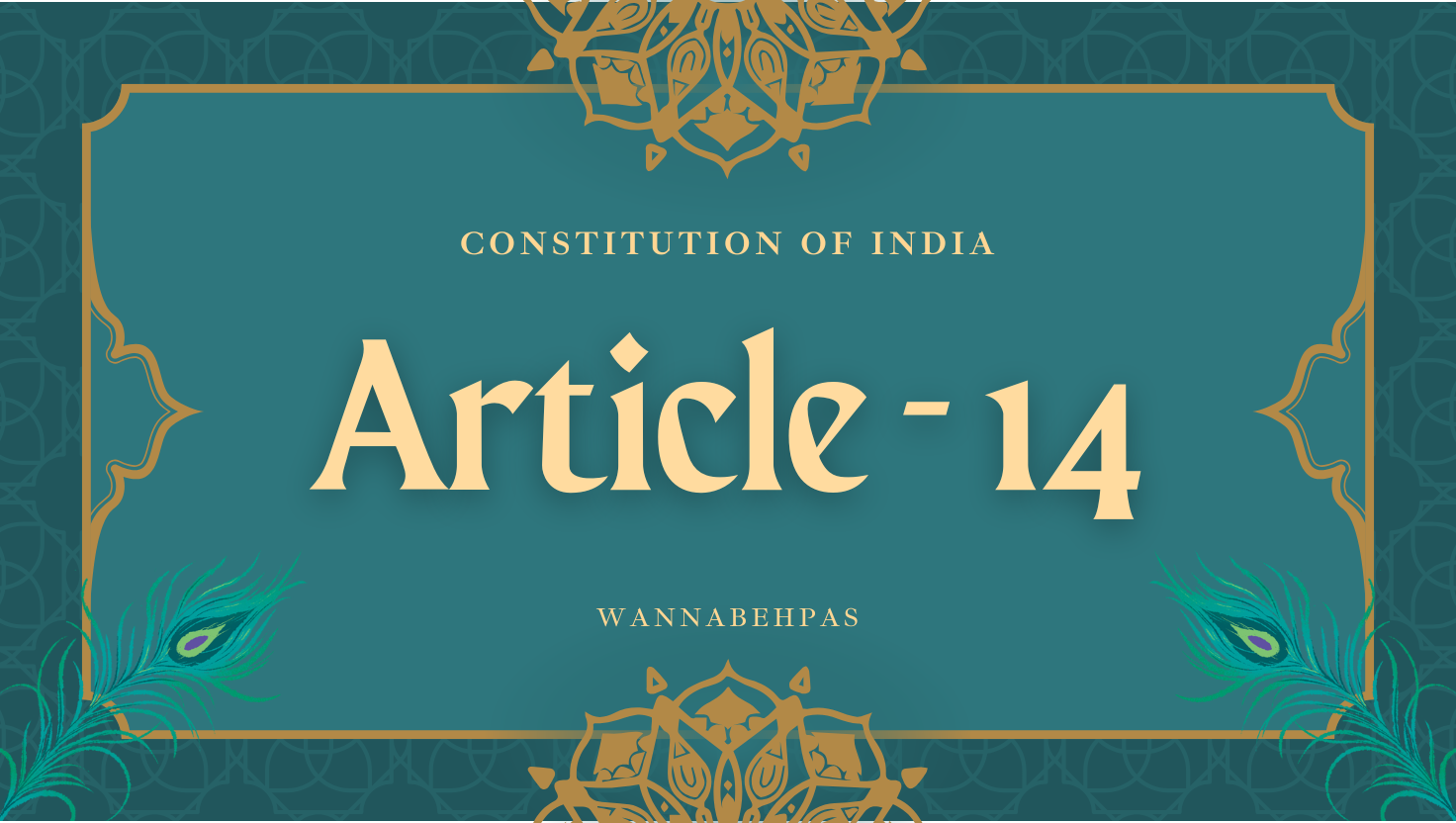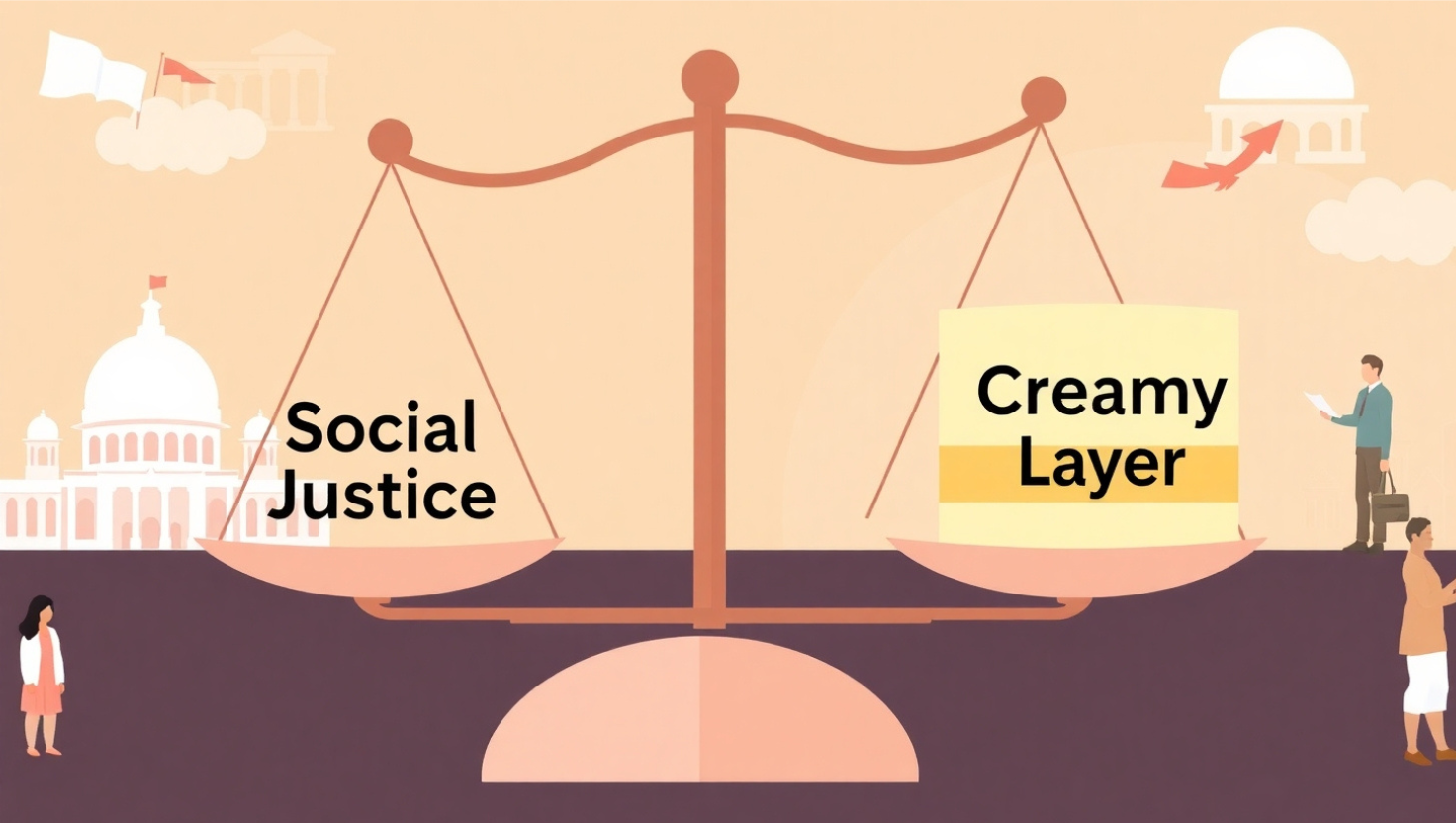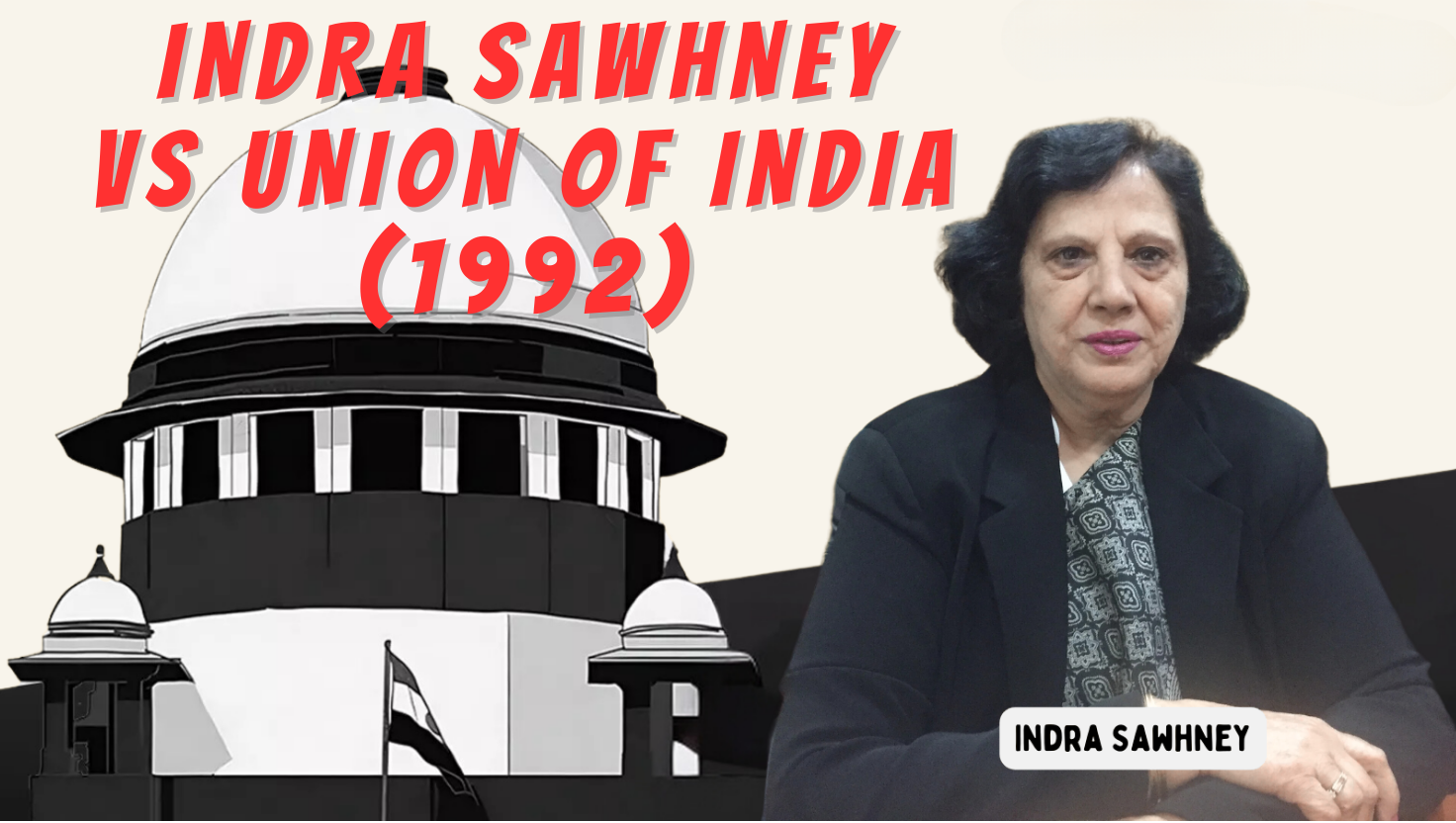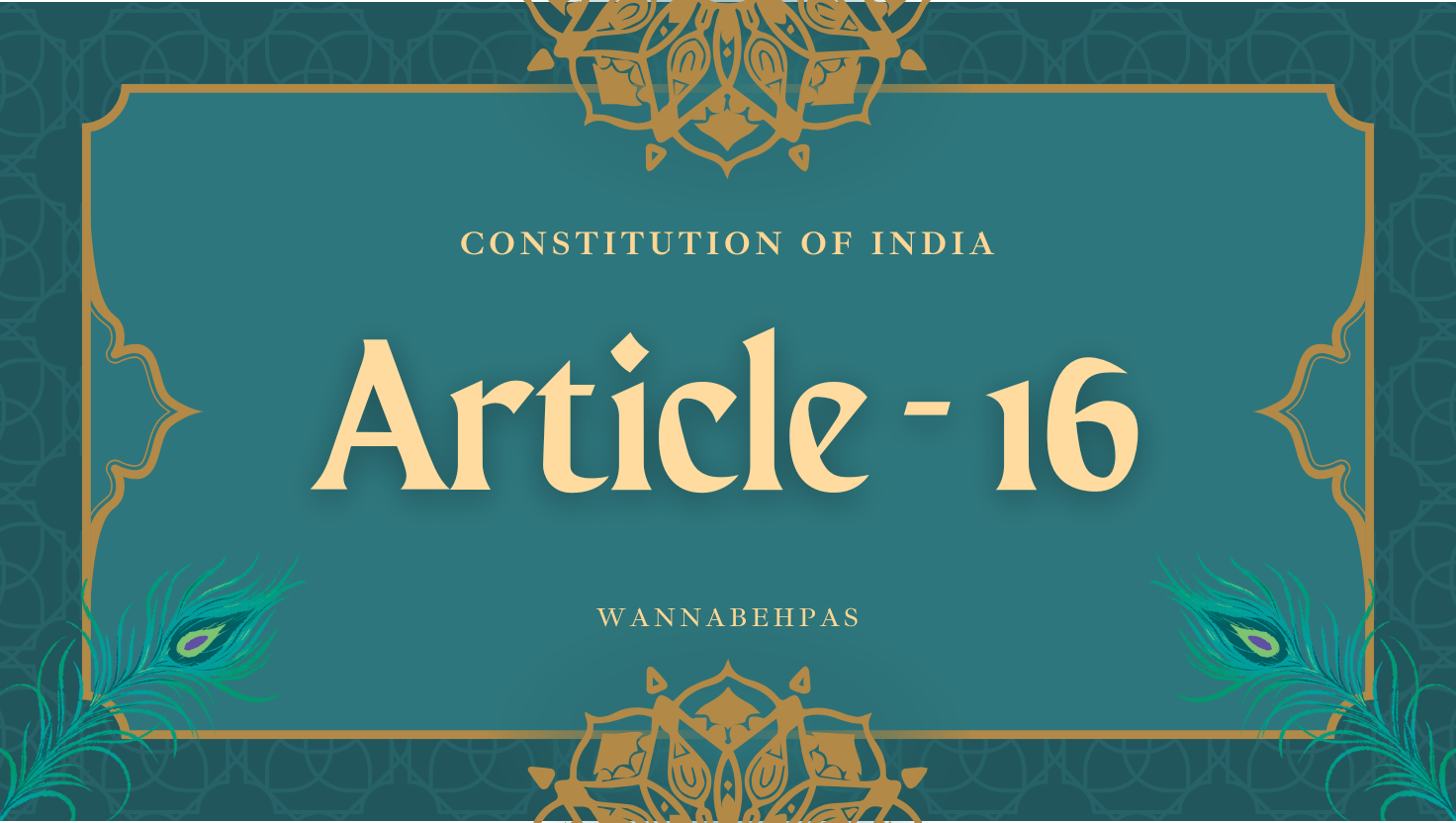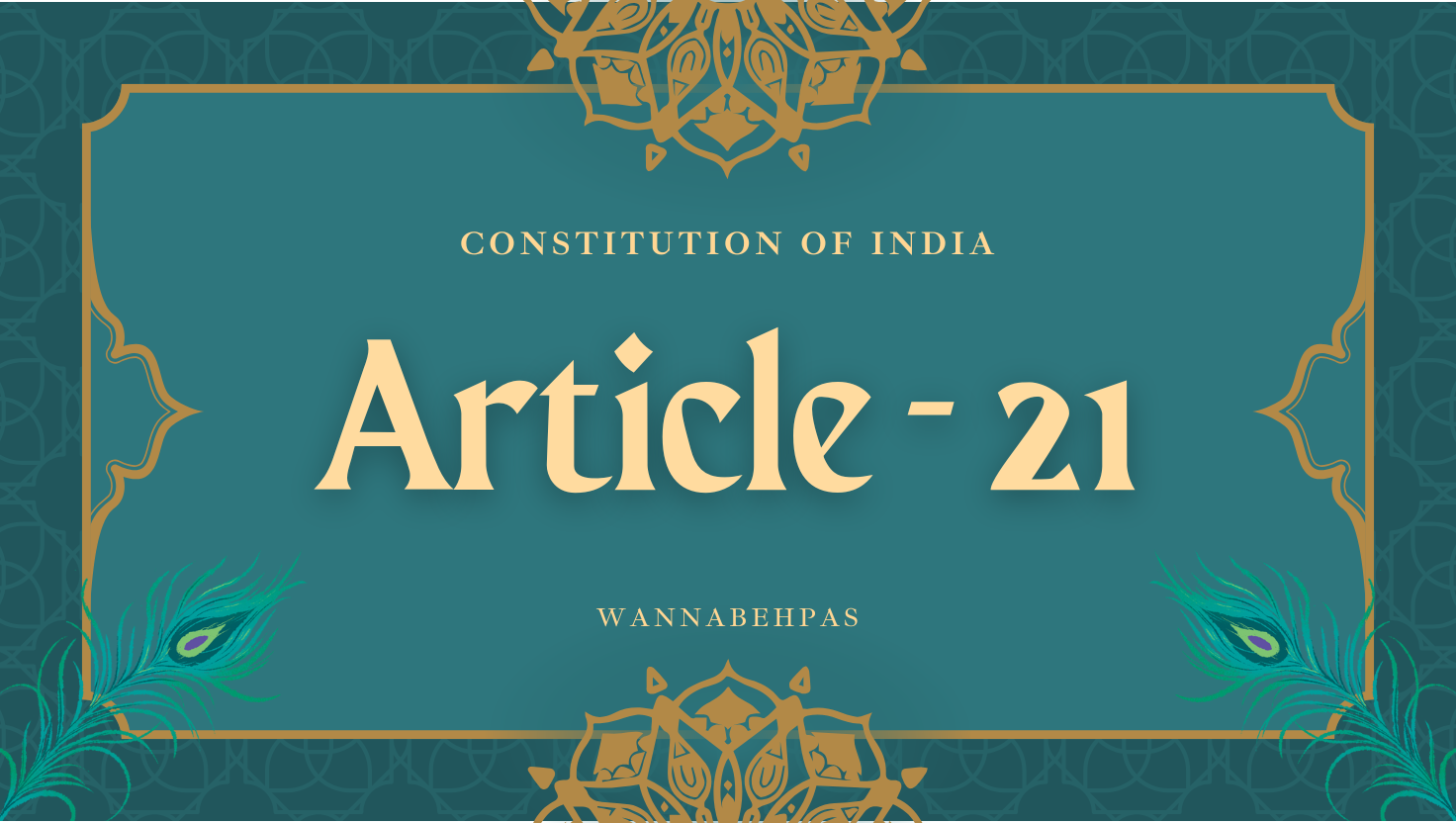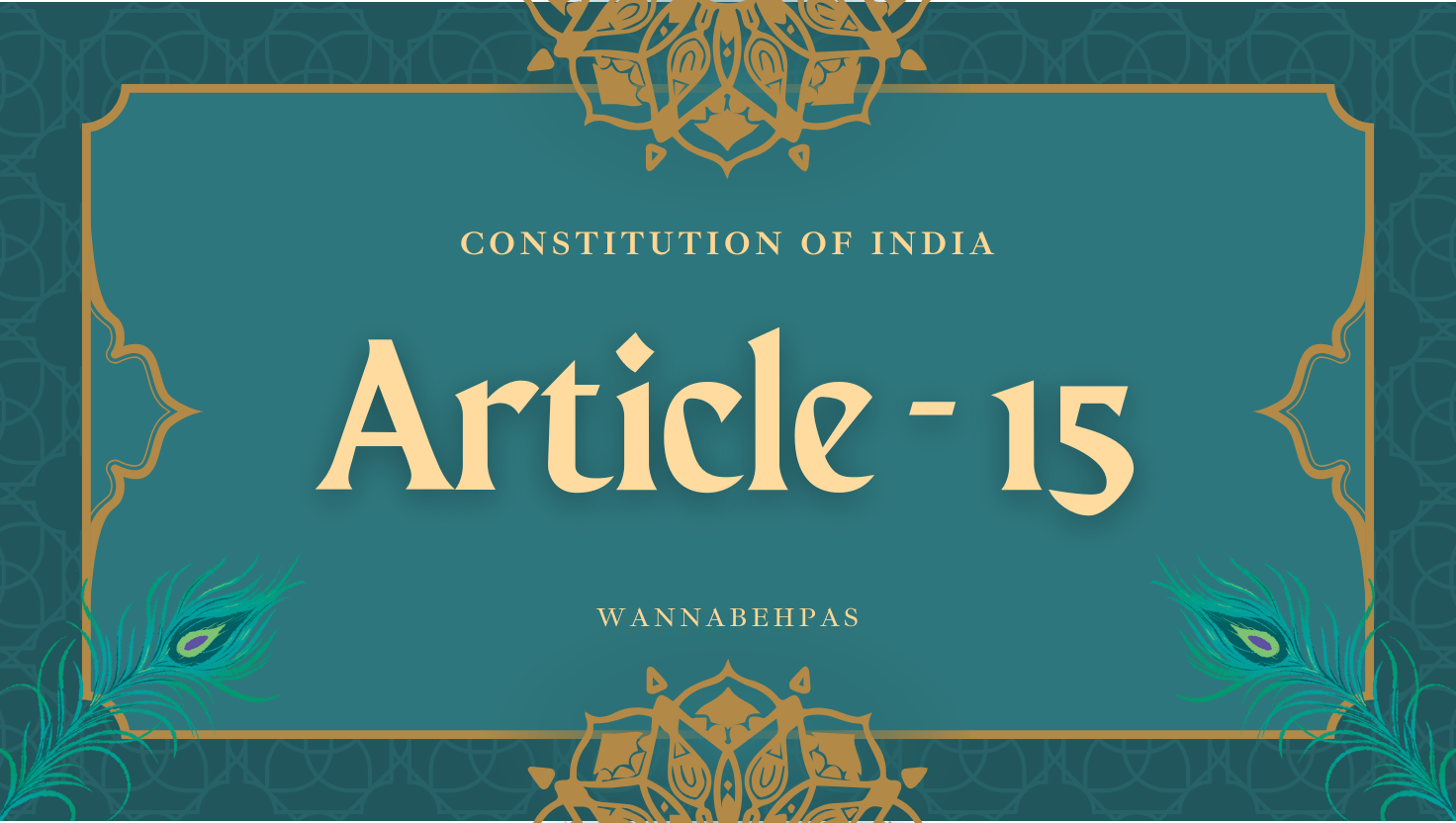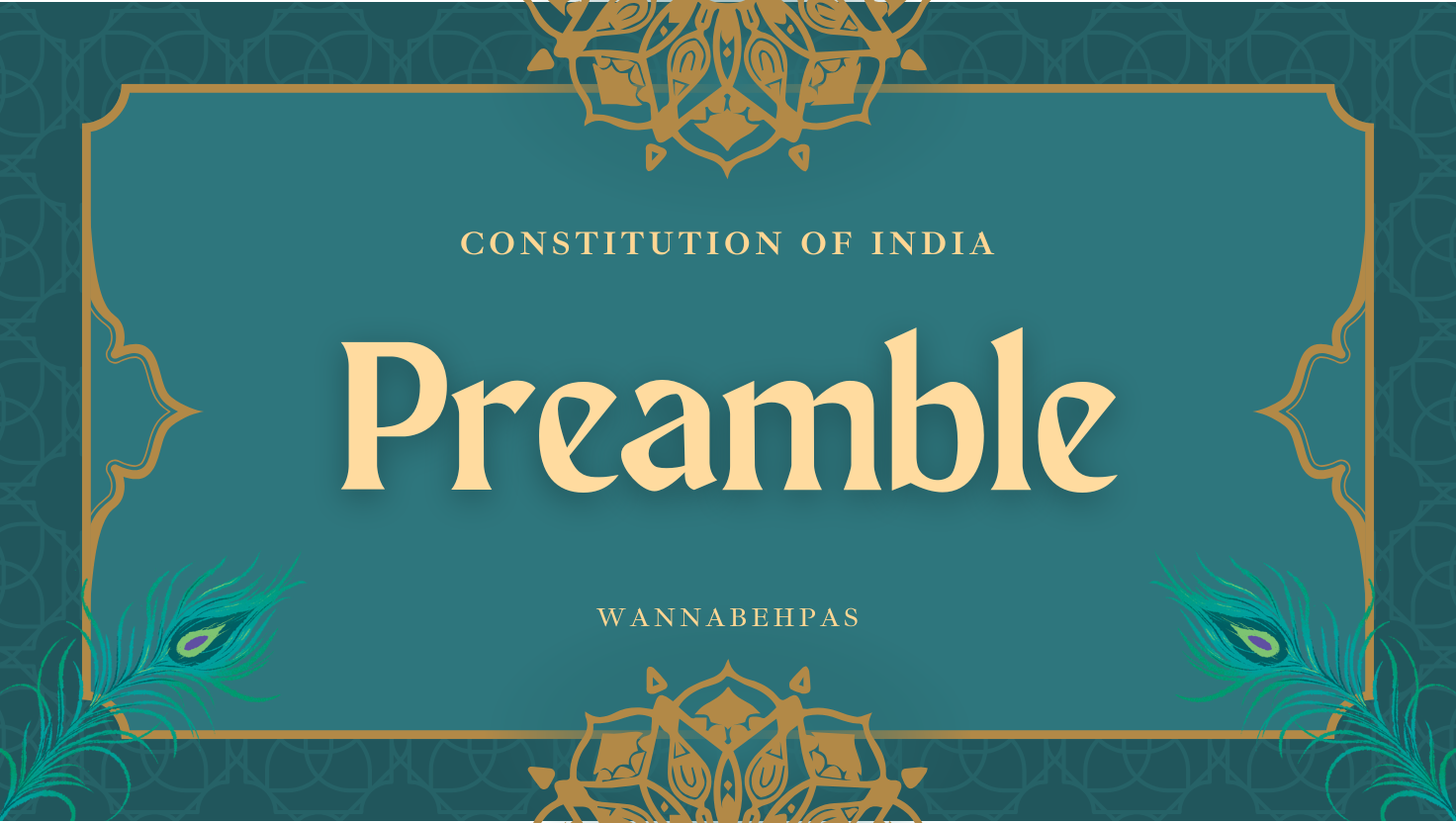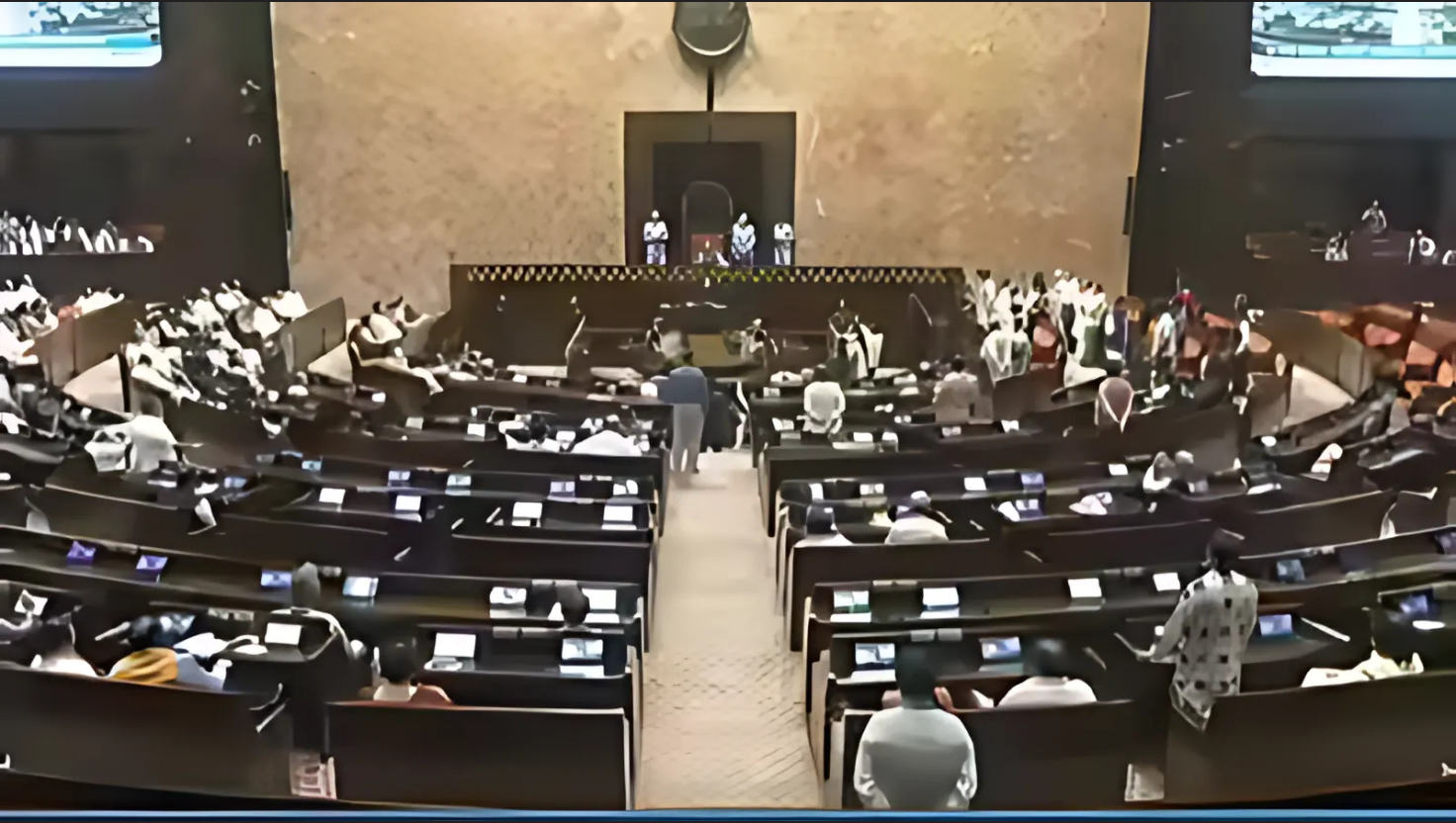Article 14: Equality Before Law in India
Syllabus: Polity – Fundamental Rights
Provision:
Article 14 of the Constitution states – “The State shall not deny to any person equality before the law or the equal protection of the laws within the territory of India.”
Essence:
It ensures that no one is above the law and guarantees fairness and non-discrimination. It applies to all persons, citizens and non-citizens alike.
Key Dimensions of Article 14
1. Equality Before Law (Negative Aspect)
- Everyone is equal in the eyes of law.
- No individual, however powerful, has any special privileges.
2. Equal Protection of Laws (Positive Aspect)
- Laws must be applied equally to all.
- The State has a duty to ensure equal treatment by making suitable provisions where necessary.
Judicial Interpretation of Article 14
Negative and Positive Content
- Justice Subba Rao (State of U.P. v. Deoman Upadhyaya, 1960):
- Equality before law → negative content (absence of privilege).
- Equal protection of laws → positive content (requires affirmative action).
Doctrines Evolved Under Article 14
1. Anti-Arbitrariness
- E.P. Royappa v. State of Tamil Nadu (1974): Article 14 guarantees protection against arbitrary state actions.
- S.G. Jaisinghani v. Union of India: Absence of arbitrary power is essential to the Rule of Law.
2. Link with Articles 19 & 21
- Maneka Gandhi v. Union of India (1978): Articles 14, 19, and 21 form a trinity. Any law curbing liberty must satisfy fairness, non-arbitrariness, and due procedure.
3. Natural Justice
- A.K. Kraipak v. Union of India: Principles of natural justice (no bias, fair hearing) are part of Article 14 to prevent miscarriage of justice.
4. Reasonable Classification
- Ram Krishna Dalmia v. Justice Tendolkar (1958): State can classify people into groups if:
- (a) There is intelligible differentia, and
- (b) It has a rational nexus with the objective of the law.
5. Reservations and Equality
- Indra Sawhney v. Union of India (1993): Article 16 is part of Article 14. Reservation is a form of classification permitted to ensure equality of opportunity.
Expansion of Article 14
Gender Justice
- Vishaka v. State of Rajasthan (1997): Sexual harassment at workplace violates Articles 14, 19, 21.
- Shayara Bano v. UOI (2016): Triple Talaq declared unconstitutional; gender equality is part of Article 14.
Rights of Transgender Persons
- NALSA v. UOI (2014): Article 14 is gender-neutral and includes transgender persons.
Significance of Article 14
- Forms the backbone of the Rule of Law in India.
- Prevents discrimination on arbitrary grounds.
- Enables affirmative action for disadvantaged groups.
- Expands with judicial interpretation to include gender justice, natural justice, and protection against arbitrariness.
Conclusion
Article 14 is not just about formal equality but about ensuring substantive fairness. Through landmark judgments, its scope has expanded to protect against arbitrariness, secure gender justice, and recognize vulnerable groups like transgender persons. It stands as the guardian of the principle that law must treat all equally while protecting the unequal through positive measures.

